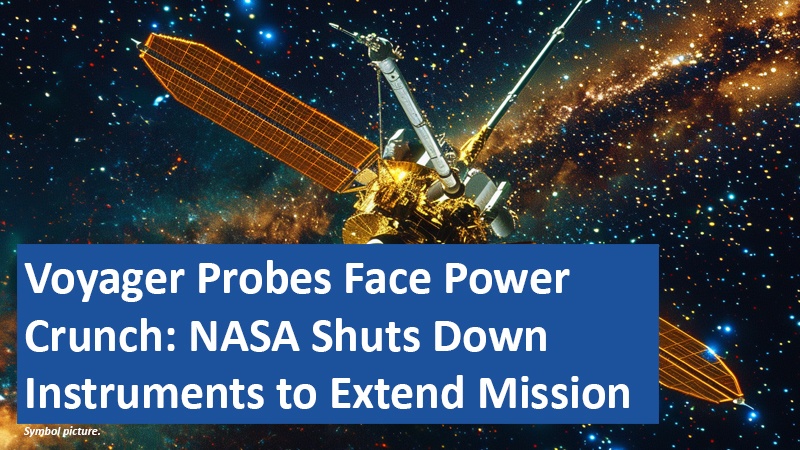
NASA is decommissioning two more instruments on the 47-year-old Voyager space probes due to dwindling power. Only three of the original ten instruments on each probe now remain active, including magnetometers and plasma wave sensors.
######################################################
Now exclusively try Amazon Prime and Prime Video free for 30 days!
##########################################################
A race against time
Launched in 1977, the Voyager probes have defied expectations, continuing to transmit valuable data even after nearly half a century in space. They are the only sources of information directly from interstellar space. However, their thermoelectric generators are running out of energy, losing approximately four watts of power each year. To conserve electricity, non-essential systems were turned off years ago, followed by a backup system in 2023 and a plasma sensor on Voyager 2 in 2024.
Strategic Shutdown
Now, further cuts are necessary to keep the two Voyager probes operational, according to NASA. “Power is becoming scarce. If we don’t shut down another instrument on each of the two probes now, they likely only have a few months left before we have to end the mission due to lack of energy,” explains Voyager project manager Suzanne Dodd of NASA’s Jet Propulsion Laboratory (JPL).
Preserving the Mission
To prevent the shutdown of the space probes and the unique record-breaking mission, NASA deactivated the cosmic ray subsystem on Voyager 1 on February 25, 2025. This instrument consists of three telescopes that capture the energy and flux density of high-energy protons from the Milky Way and the Sun. In 2012, data from this instrument revealed that Voyager 1 had left the heliosphere, the protective magnetic bubble of our solar system.
What’s Next for Voyager?
These measures aim to enable Voyager 1 and 2 to remain active into the 2030s despite their diminishing energy reserves, according to NASA. The data they provide remains unique and invaluable for understanding the interstellar environment. Although the loss of instruments is regrettable, it ensures the probes continue to send back vital data for as long as possible.
The Voyager probes continue to amaze with their resilience and scientific contributions. Although the mission faces challenges, NASA’s strategic decisions should enable these pioneering spacecraft to explore interstellar space for years to come.
What do you think about the Voyager mission? Share your thoughts in the comments.
Based on content from www.scinexx.de and additional research.